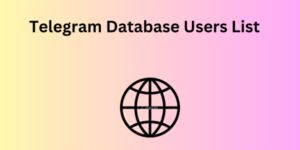Rarely will you come across someone who is unaware of what WhatsApp is. WhatsApp’s features and free messaging service have contributed to its growing popularity since its introduction.
WhatsApp Business was introduced in 2018 with the goal of enabling its users to transact business over instant messaging apps. The introduction was a remarkable success for WhatsApp.
In 2023, the number of global consumers & companies using WhatsApp Business was estimated to surpass 1.5 billion users.
However, how can you set up WhatsApp for
your internet business? The solution is straightforward, you may do business with a global user base of 3.031 billion by utilizing the WhatsApp API.
Let’s dive in to understand what exactly WhatsApp API is and how it works for your business.
What is WhatsApp API?
WhatsApp API is a tool that allows businesses to use WhatsApp for customer communication on a larger scale. As compared to the personal use of the standard WhatsApp app, businesses can use the API (Application Programming Interface) to send and receive messages from their clients via WhatsApp.
It can be combined with chatbots, bulk messaging, and automated responses for customer support software. This enables companies to effectively handle client interactions by providing prompt assistance and updates via WhatsApp, one of the most widely used messaging apps globally.
The primary functions of the WhatsApp API include improved messaging functionality, such as the ability to send and receive documents, images, videos, alerts, and notifications.
Businesses may transact instantly and easily on the most widely used applications thanks to these WhatsApp APIs.
Is there a difference between WhatsApp API and WhatsApp Business?
Yes, there is a difference between WhatsApp API and WhatsApp Business. We will discuss them in detail:
What is WhatsApp Business?
Small businesses are the main target audience for WhatsApp Business. Using capabilities to automate, organize, and promptly reply to messages, this free mobile software for Android and iOS enables businesses to engage with customers with ease. Among WhatsApp Business’s primary features are:
Business Profile: Create a business profile with essential information like address, business description, email, and website.
Messaging Tools: Use automated greeting messages, quick replies, and away messages.
Labels: Organize and manage chats and contacts with labels.
Catalogs: Showcase products and services in a catalog within the app.
Uses of WhatsApp API
The WhatsApp API is intended for medium-sized and larger companies that require large-scale communication with a wider client base. The WhatsApp Messaging API, in contrast to the WhatsApp Business app, is a tool that incorporates WhatsApp messaging features into business applications.
Among the WhatsApp API’s primary features are:
Scalability: Handle large volumes of messages, suitable for enterprises.
Integration: Integrate with CRM systems, customer support platforms, and other business applications.
Automation: Implement chatbots and automated workflows to manage customer interactions efficiently.
Webhooks: Receive real-time notifications for incoming messages and status updates.
Differences Between WhatsApp API and WhatsApp Business
1. Target Audience:
WhatsApp Business: Ideal for small businesses with basic communication needs.
WhatsApp API: Suited for medium to large businesses requiring robust messaging capabilities and integration with other business systems.
2. Platform:
WhatsApp Business: A mobile app available on Android and iOS.
WhatsApp API: An API that integrates with existing business systems, requiring development and technical setup.
3. Features:
WhatsApp Business: Offers basic messaging tools, catalogues, and business profiles.
WhatsApp API: Provides advanced features like automated workflows, chatbots, and integration with CRM systems.
4. Scalability:
WhatsApp Business: Suitable for telegram database users list handling individual or small group interactions.
WhatsApp API: Designed to manage large volumes of customer interactions efficiently.
5. Cost:
WhatsApp Business: Free to use with no setup cost.
WhatsApp API: Typically involves costs for setup, maintenance, and usage, often managed through WhatsApp Business Solution Providers (BSPs).
For small businesses looking for an easy and efficient way to connect with their clientele, WhatsApp Business is ideal. WhatsApp API, on the other hand, is made for bigger businesses that need automation, advanced messaging features, and system integration. Businesses may improve their customer communication strategy by selecting the best tool by being aware of the distinctions between these two alternatives.
12 Benefits of WhatsApp API for businesses
For companies aiming to improve their communication tactics, the WhatsApp API has a lot to offer. Enhanced client interaction and assistance, scalability, and compatibility with current systems, the API offers a strong option for contemporary businesses. Let us look at the list of benefits WhatsApp API offers.
1. Increased Interaction with Customers
Businesses can interact with customers in real-time with the WhatsApp API, providing tailored experiences that raise customer happiness. 2. Scalability for Large Businesses
Bulk messaging and automated workflows are supported, guaranteeing effective communication even at busy times.
3. Combining Business Systems with Integration
Numerous commercial applications, including marketing tools, customer support platforms, and CRM systems, can be linked with the API.
4. Robotics and Automation
Chatbots can be used by businesses whatsapp plugins for wordpress: top 7 to manage standard enquiries, offer prompt responses, and carry out particular activities like scheduling appointments or monitoring orders. Automation guarantees round-the-clock availability and lessens the burden on support workers.
5. Safe Interaction
End-to-end encryption is used by the WhatsApp API to guarantee the privacy and security of every message. 6. Instantaneous Alerts
Businesses can get real-time notifications for incoming messages, message status updates, and other events using webhook functionality. This makes it possible to respond quickly and better handle client interactions.
7. Enhanced Client Assistance
Businesses can provide better customer service by integrating the API with helpdesk solutions and giving agents the resources they need to serve clients efficiently. Issues can be resolved more quickly with features like automated responses and quick replies.
8. Adaptable Templates
For notifications, alerts, and updates, businesses can design and utilize pre-approved message templates. By doing this, uniform communication and adherence to WhatsApp’s rules are guaranteed.
9. Cost-effective Communication
Businesses can use WhatsApp’s large user base to their advantage and improve client outreach.
10. Worldwide Reach
With a large global user base, WhatsApp is a popular messaging service. Businesses may contact clients in different areas, support several languages, and expand their global presence by leveraging the WhatsApp API.
11. Enhanced Effectiveness
Through the automation of repetitive b2b fax lead activities and seamless integration with pre-existing systems, the WhatsApp API enhances company efficiency.
12. Improved Marketing Abilities
Businesses can send clients customized marketing messages and offers straight through the API. Businesses may develop compelling campaigns that increase conversions by utilizing features like interactive buttons and multimedia content.
Real World Examples of Businesses using WhatsApp API effectively
Businesses in an array of industries make use of the WhatsApp API effectively to improve customer communication and optimize operations. Here are some examples from the real world:
1. Customer Support for e-commerce:
Prominent online shopping platforms like Amazon leverage the service. Customers can get fast answers to questions concerning the status of their orders, return guidelines, or product specifications.


